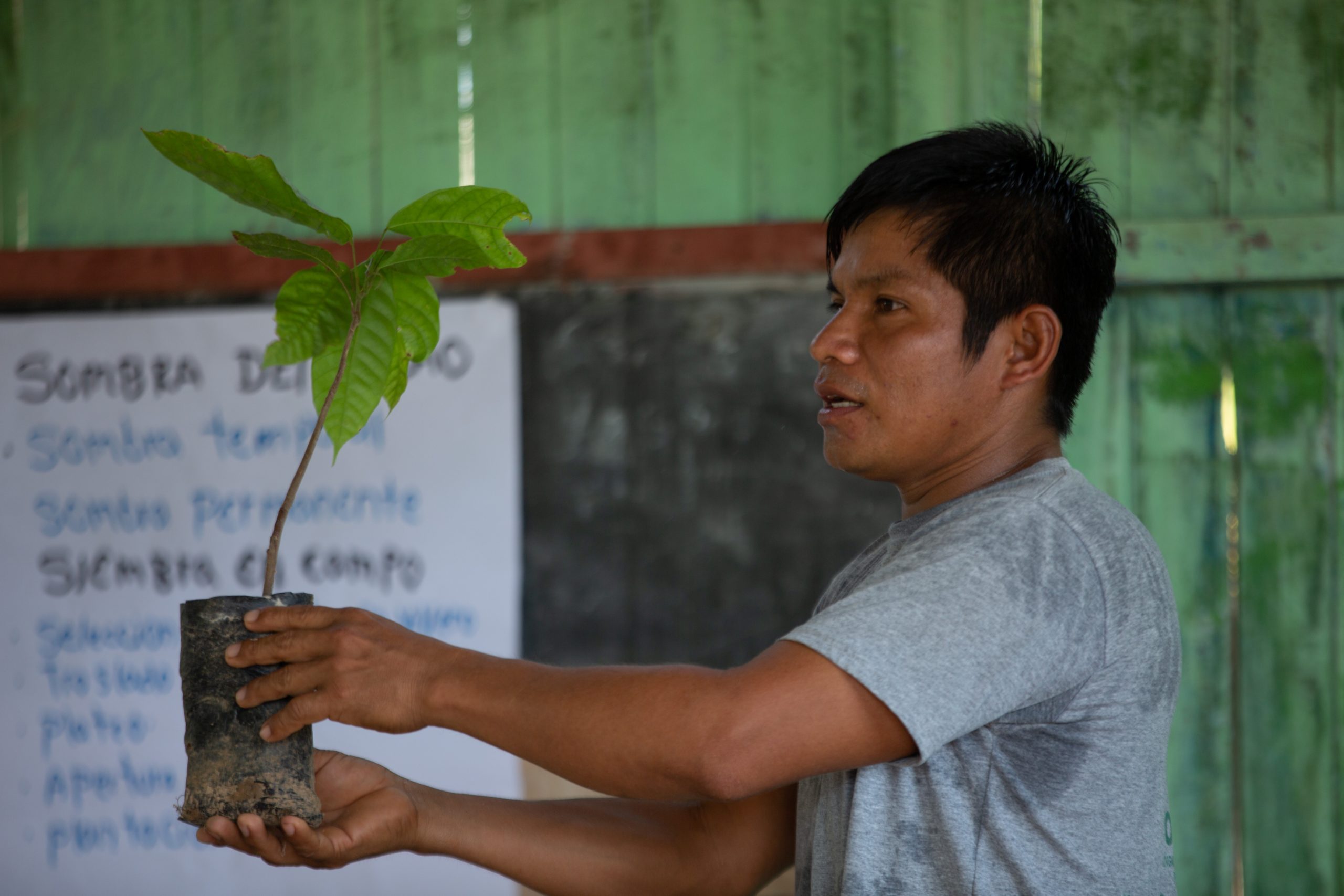Our Nii Kaniti project in Peru is protecting the threatened forest of seven indigenous communities through working to develop more sustainable livelihoods and improved ways of using forest resources. This takes many forms: growing cacao in sustainable agroforestry systems, FSC sustainable timber production, and native crafts such as traditional Shipibo Conibo embroidery inspired in forests.
Key challenges traditionally faced by local indigenous businesses are added value, scaling though connection to markets, negotiation skills, quality, social organization for business and business or financial literacy. Climate finance is facilitating the commercial growth of indigenous sustainable economic activities into profitable businesses through providing support in these areas.
Nii Biri (meaning ‘wonders of the forest’ in Shipibo Conibo language) is a social enterprise based in the project area, supported by our implementing partner AIDER but run by local and indigenous people, with direct access to the communities. Comprised of a team of artisans, and one powerful indigenous advocate Diana Mori (read her story here), this team helps to bring added value to the economic activities of indigenous communities that are being supported by the Nii Kaniti project. It acts as a central hub for indigenous economic activities, coordinating the upscaling of products including innovation and technical skilling, route to market, business administration and promotion of products.
For example, Nii Biri has supported the FSC sustainable timber production. FSC is an international standard that certifies that trees within the wider forest are being logged sustainably. The first shipment of FSC wood from Nii Kaniti project was to a client in Canada and was a proud achievement for the communities; the communities of Nii Kaniti are one of the first indigenous FSC producers in the world and also the first FSC timber producers in Peru. However, the client needed traditional planks of wood. In order to get uniform wood planks, only the core of a tree trunk is used, and the rounded sides are planed off. This left a significant amount of excess scrap wood, which is still high-grade, FSC timber.
This scrap wood typically would go to waste, however the artisans at Nii Biri are working to upscale these offcuts into beautiful items – chopping boards, wine holders, notebooks with wooden covers, pen holders, even jewellery! Nii Biri is then working to sell these products in local markets and fairs in both Pucallpa and Lima – simultaneously bringing attention to the conservation work of the communities, their cultural heritage and the importance of buying fairtrade products made from sustainably sourced materials. This is also providing additional income at a fairtrade value to the local communities for their natural resources.
Another example of an indigenous business that Nii Biri has supported is local women’s groups in the production of traditional crafts through providing materials and a route-to-market – read about this work here.
Developing sustainable and inclusive enterprises is a key aspect of our conservation model, as these help to tackle the route drivers of deforestation – poverty, poor use of natural resources, or economic necessity due to inequality. Climate finance is working to develop alternative livelihoods for local communities that promote conservation of the threatened Amazon rainforest. Read more about the work of the Nii Kaniti project here.

